Nexus Notes – Updated Planetary Boundaries special edition
Nexus Notes #15
Welcome to Nexus Notes — a twice-monthly collection of things that caught my attention: ideas I’m exploring, articles worth reading, and threads that connect to the bigger picture of climate, biodiversity, and water. It’s part reading list, part reflection — designed to spark curiosity and help us think differently about the challenges ahead.
TL;DR — Planetary Boundaries, Doughnut Economics, Planetary Health Diet, and more.
Hi folks!
I’m in Davis, California, this week attending the International Society for River Science conference at UC Davis, where I gave a keynote on Monday on “Beyond stationarity: river futures in an era of extremes”. (If “stationarity” is an unfamiliar term, check out this post.) The conference is focused on three themes: reconnecting, restoring and revitalising rivers. Here’s the final message from my talk (I’m sure if you’re a long-time reader of mine, that all sounds rather familiar):
It’s been lovely catching up with old colleagues and making new ones, enjoying wandering around Davis, and getting my fill of good Mexican food before heading home to New Zealand.
The conference has been fantastic. There has been a lot of talks about truly actionable research or direct on-the-ground implementation of research for better managing river ecosystems. River flow management has been a big theme of the work so far as has restoration and revitalisation of river floodplains. It’s a great conference for those interested in the interplay between academic research and implementation on the ground.
Oh, and if you’re joining me here from the conference, you might like my recent miniseries on rivers:
Anyway, onto this week’s post (apologies it’s a bit delayed). This week is a bit of a different version of Nexus Notes — focused on the update to the Planetary Boundaries and associated research and press. I’m keeping this one free, but Nexus Notes are usually a little bonus for paid subscribers. If you want to keep reading them and the archives, click below.
Last year, I reported that six of the nine Planetary Boundaries had been crossed. What are these boundaries, you say? These are the nine processes known to regulate the stability, resilience (ability to absorb disruptions) and life-support functions of our planet. Or, as I said in last year’s post:
The planetary boundaries framework uses Earth system science to understand the key processes that maintain the stability and resilience of Earth as a whole. It identifies how much human pressure each of nine key processes can take before the Earth leaves a “Holocene-like” state, which has enabled humans to thrive for thousands of years. This state, characterised by relatively stable and warm conditions, is what allowed agriculture and modern civilisations to evolve.
Well, now the seventh Planetary Boundary of nine has been crossed according to the latest Planetary Health Check. Ocean acidification has joined the list, joining climate change, change in biosphere integrity, land system change, freshwater change, modification of biogeochemical flows, and introduction of novel entities.
All seven of these Planetary Boundaries continue to move in the wrong direction. That’s more than three-quarters of the Earth’s support systems outside the safe zone and getting worse.
In last year’s post, I mentioned that Earth Overshoot Day fell on August 1st. Well, this year, it fell a week earlier, on July 24. So, we’re yet to bend the curve in the right direction towards a safe operating space for humanity.
Two processes remain within the Safe Operating Space: increase in atmospheric aerosol loading, which is improving, and stratospheric ozone depletion, which is currently stable.
Yes, the planet is in a dire state, but the healing of the ozone layer and the reduction of aerosols highlight we can actually turn things around. The window remains open. We’ve not crossed into irreversible territory. It’s our choice whether we want to or not.
We have no shortage of evidence of scalable solutions. The barrier continues to be one of implementation, not ideas, science, or tools. For the rest of this post, I’m going to share a bunch of recent research and media around the planetary boundaries framework from the past few weeks.
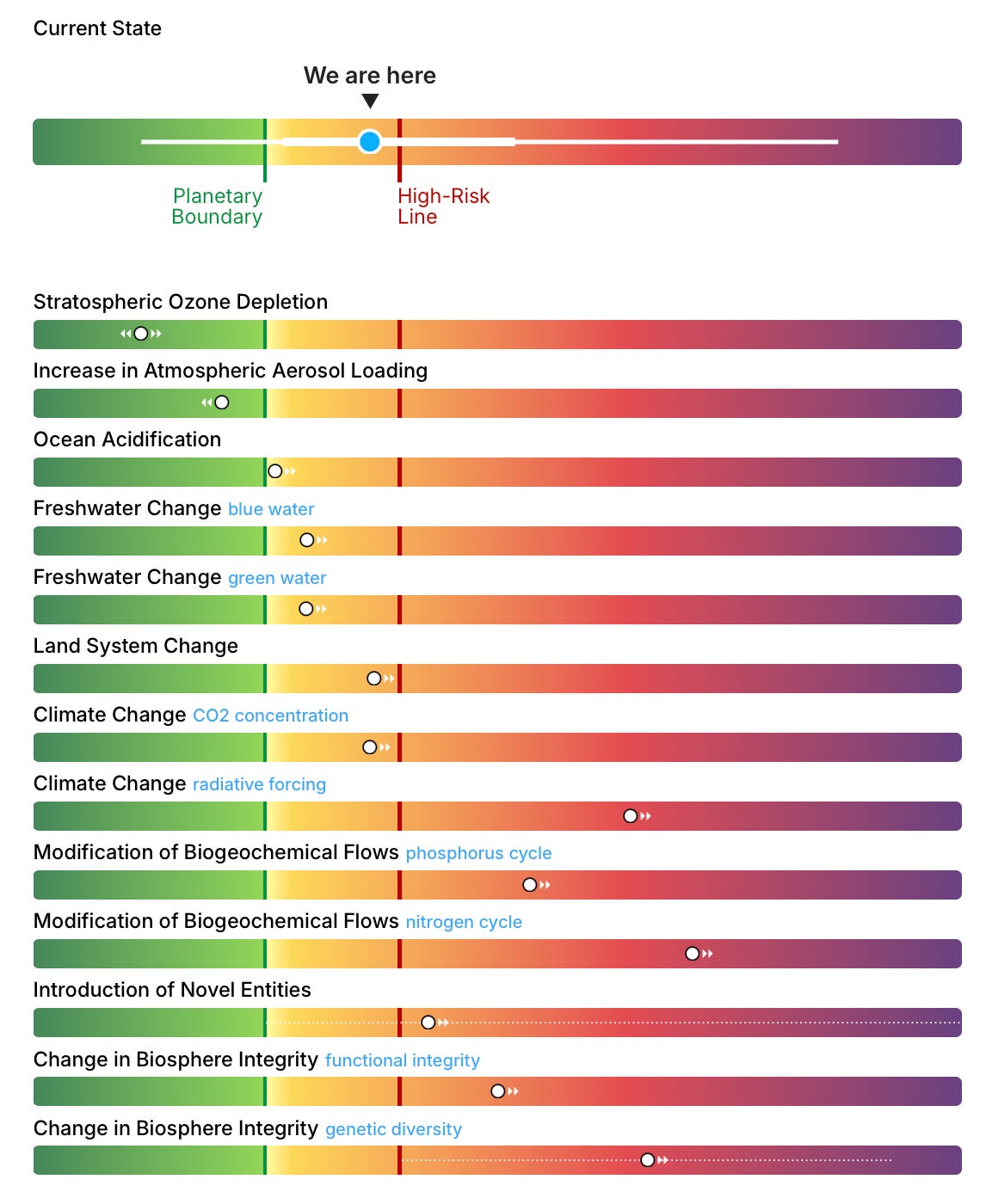
A new editorial in Nature, End GDP mania: how the world should really measure prosperity, highlights how our “obsession with economic output as a measure of human development puts sustainability on the back burner”. We’ve been so hell-bent on growing GDP that we’ve left everything else behind. An expert panel has been tasked with coming up with a new set of indicators to for more balanced measures of societal wellbeing, but this is a massive, complex challenge.
That’s where the updated Doughnut of Doughnut Economics comes in. In a new paper in Nature, Andrew Fanning and Kate Raworth (the creator of Doughnut Economics) outline a revised set of 35 social and ecological indicators for monitoring trends in social deprivation and ecological overshoot. Looking at the trends from 2000 to 2022 shows we’re doing a bad job of things.
“Although global gross domestic product (GDP) has more than doubled, our median results show a modest achievement in reducing human deprivation that would have to accelerate fivefold to meet the needs of all people by 2030. Meanwhile, the increase in ecological overshoot would have to stop immediately and accelerate nearly two times faster towards planetary boundaries to safeguard Earth-system stability by 2050.”
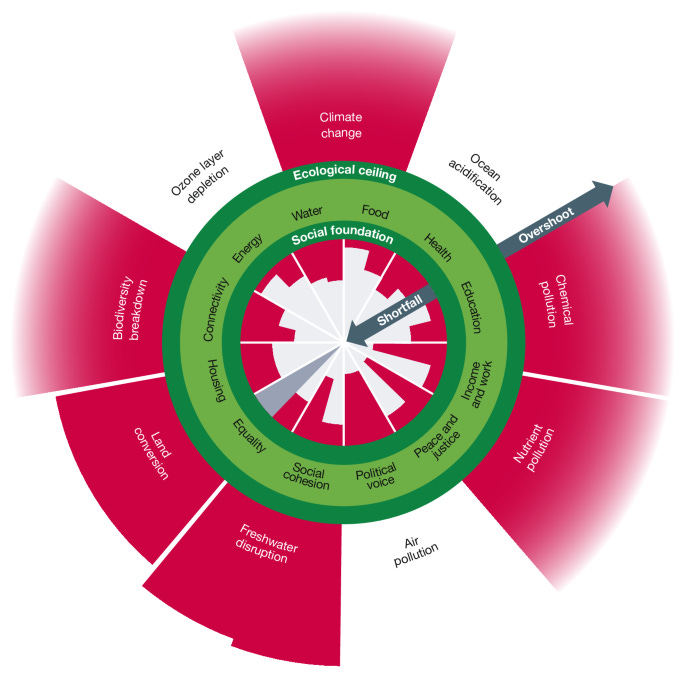
They also found, as I frustratedly wrote last year, the wealthy contribute the most to planetary decline. We need to end our obsession with GDP, and as they say, assign “priority to human needs and planetary integrity”. The inequities are enormous:
“the richest 20% of nations, with 15% of the global population, contribute more than 40% of annual ecological overshoot, whereas the poorest 40% of countries, with 42% of the global population, experience more than 60% of the social shortfall.”
Economic growth does not equal human progress! This quote from the original Doughnut Economics book sums it up nicely:
“We have economies that need to grow, whether or not they make us thrive; what we need are economies that make us thrive, whether or not they grow.”
As we all know, food is a major contributor to ecological overshoot and climate change. The ‘Planetary health diet’ could save 40,000 deaths a day, landmark report finds. This piece highlights the outcomes of the recent EAT-Lancet Commission on healthy, sustainable, and just food systems. This isn’t a highly restrictive, fully vegan diet. It’s flexible, allows consumption of meat and plenty of freedom, but it has the potential to make real inroads if adopted widely.
The Planetary Health Diet is:
a global reference diet based on the best available science. It represents a dietary pattern that supports optimal health outcomes and can be applied globally for different populations and different contexts, while also supporting cultural and regional variation. The PHD is rich in plants: whole grains, fruits, vegetables, nuts, and legumes comprise a large proportion of foods consumed, with only moderate or small amounts of fish, dairy, and meat recommended. The PHD is based entirely on the direct effects of different diets on human health, not on environmental criteria. The diet’s name arose from the evidence suggesting that its adoption would reduce the environmental impacts and nutritional deficiencies of most current diets.
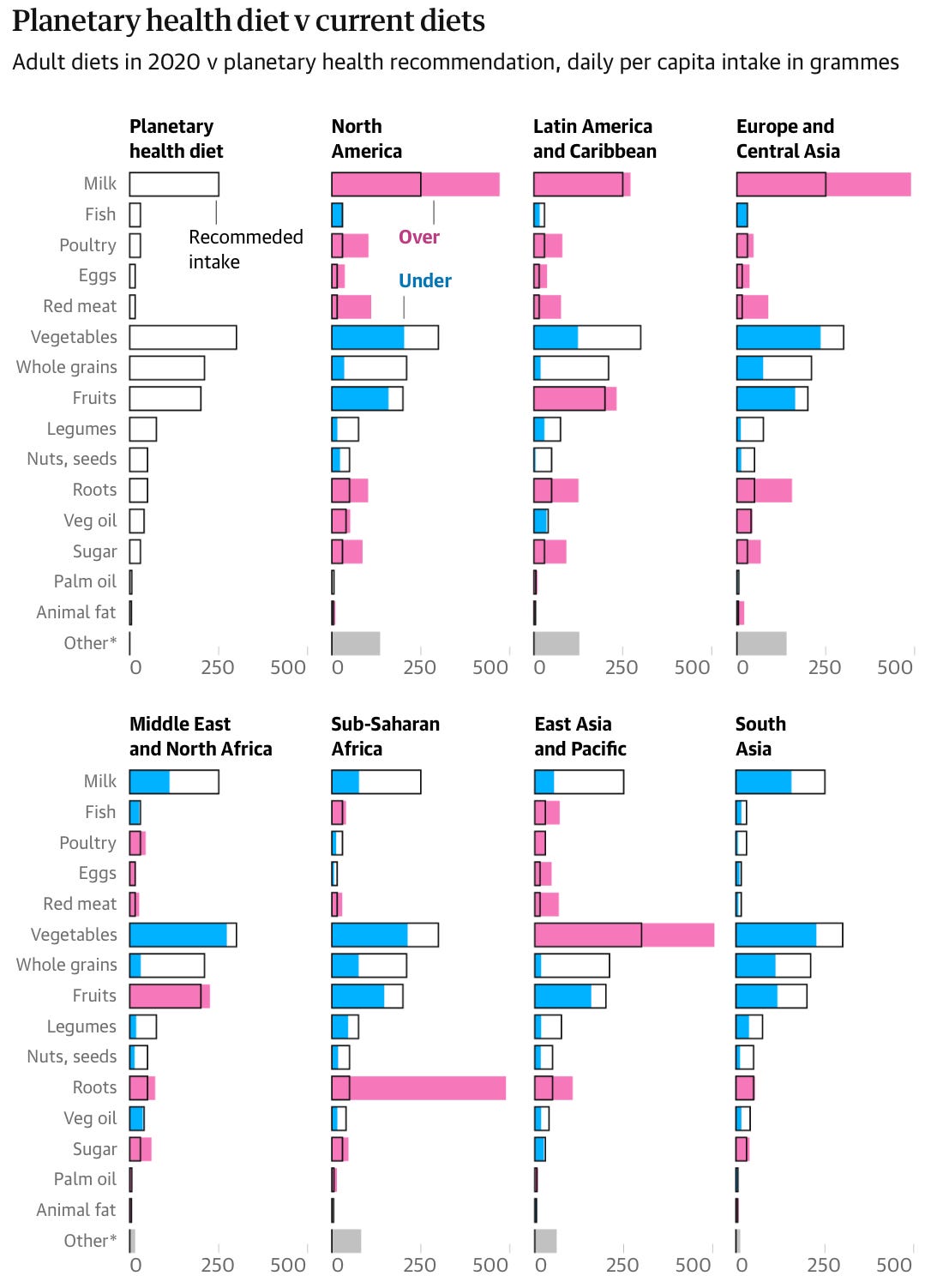
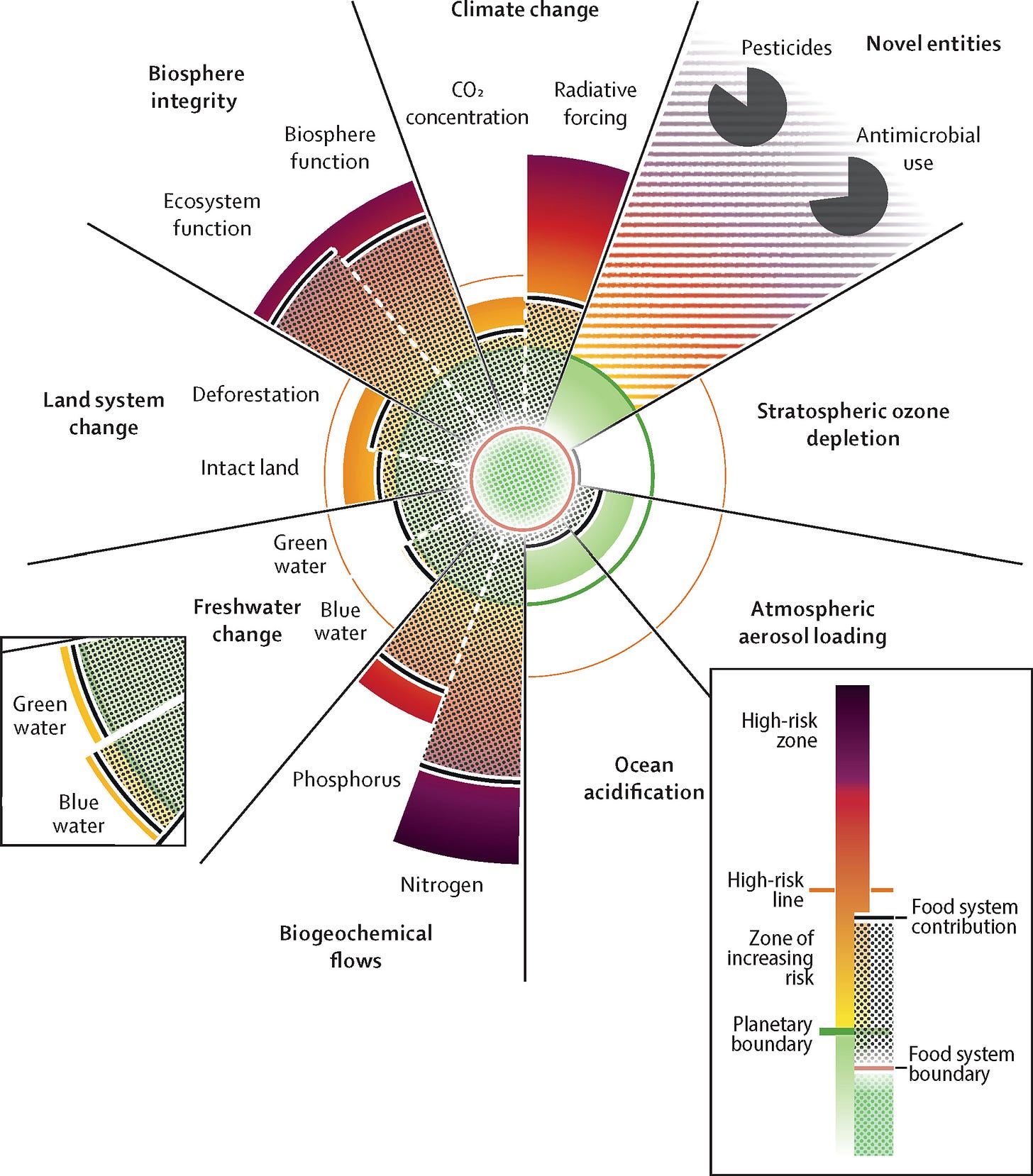
We know food is a major contributor to planetary issues. A simple shift in diet can really help to move the needle if adopted at scale.
Briefly, in other news
Why braided rivers need big-picture conservation. This is a press release from a recent paper by Holly Harris, a former PhD student in my group, now a postdoc in Alaska. The piece highlights how "NZ’s braided rivers are rare, endangered and losing their resilience. UC research is uncovering their hidden web of life to guide future conservation. But its findings aren’t limited to NZ, so if you’re interested in rivers, you might like to check it out.
As the seasons change nature becomes unpredictable. Another great piece from Yvonne Buckley, whose work I shared a few weeks back in an earlier Nexus Notes. (I suspect, I’ll be sharing lots of her pieces for the Irish Times as they’re ace! I hope you see this, Yvonne.) This time, she discusses our paper on seasonality (newsletter post here). Very cool to see this shout out, thanks Yvonne!
Remember: the window is still open to turn things around. We choose what happens next!
See you next week!
Jono



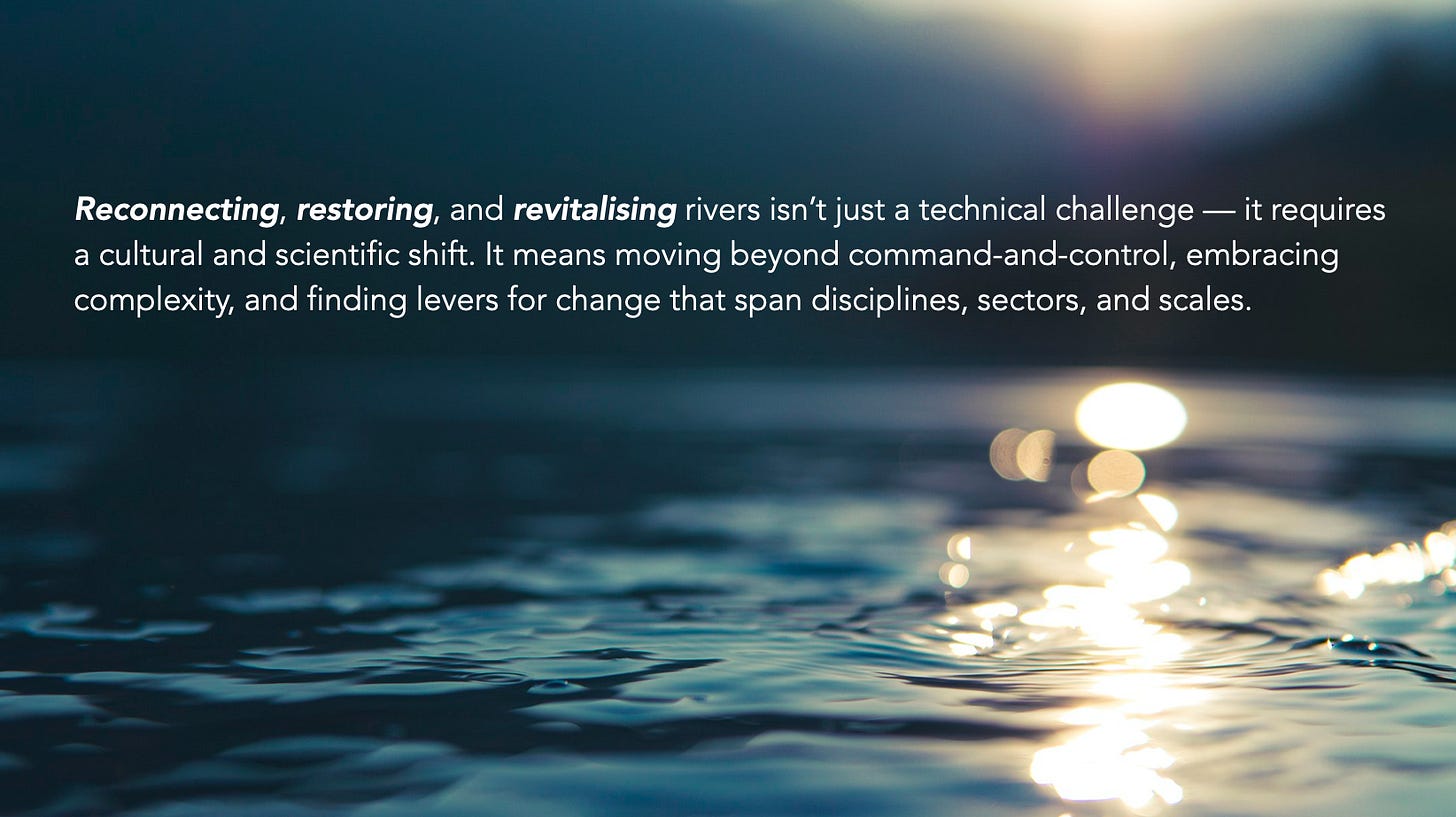
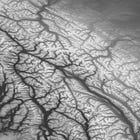


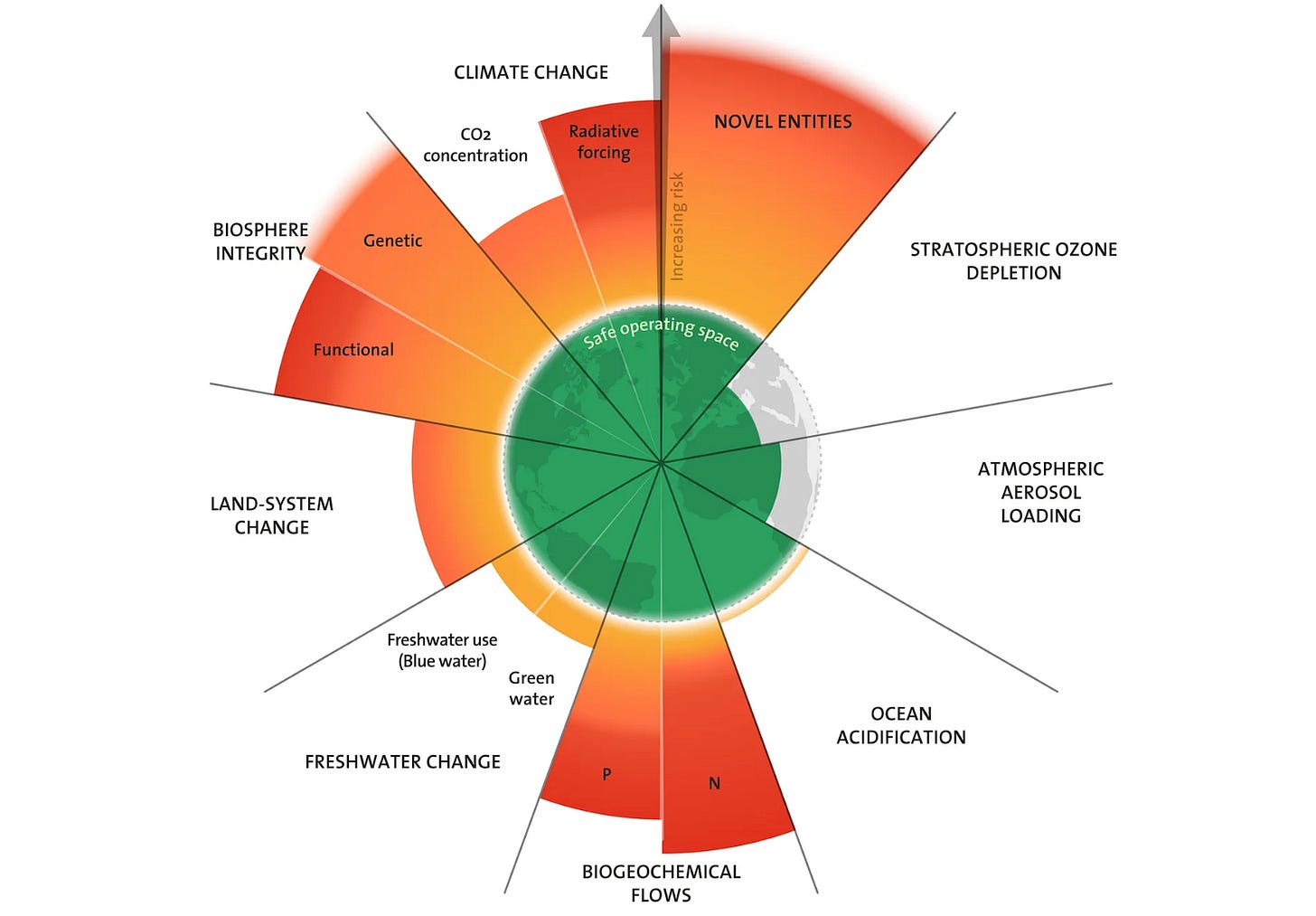
Interesting reading but also scary how our planet is suffering under human habitation.
Loved this! Such a useful summary of keys pieces that all fit together - essential reading, thank you 🙏